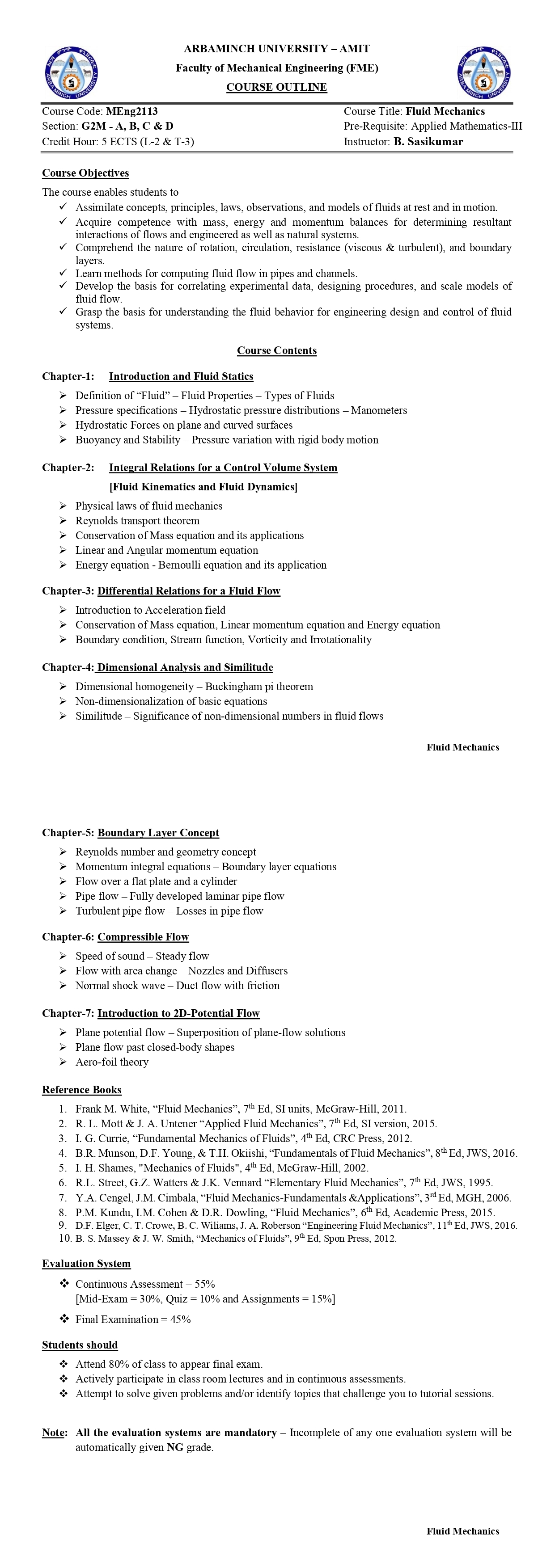The course enables students to
ü Assimilate concepts, principles, laws, observations, and models of fluids at rest and in motion.
ü Acquire competence with mass, energy and momentum balances for determining resultant interactions of flows and engineered as well as natural systems.
ü Comprehend the nature of rotation, circulation, resistance (viscous & turbulent), and boundary layers.
ü Learn methods for computing fluid flow in pipes and channels.
ü Develop the basis for correlating experimental data, designing procedures, and scale models of fluid flow.
ü Grasp the basis for understanding the fluid behavior for engineering design and control of fluid systems.

- Teacher: Bashyam Sasikumar